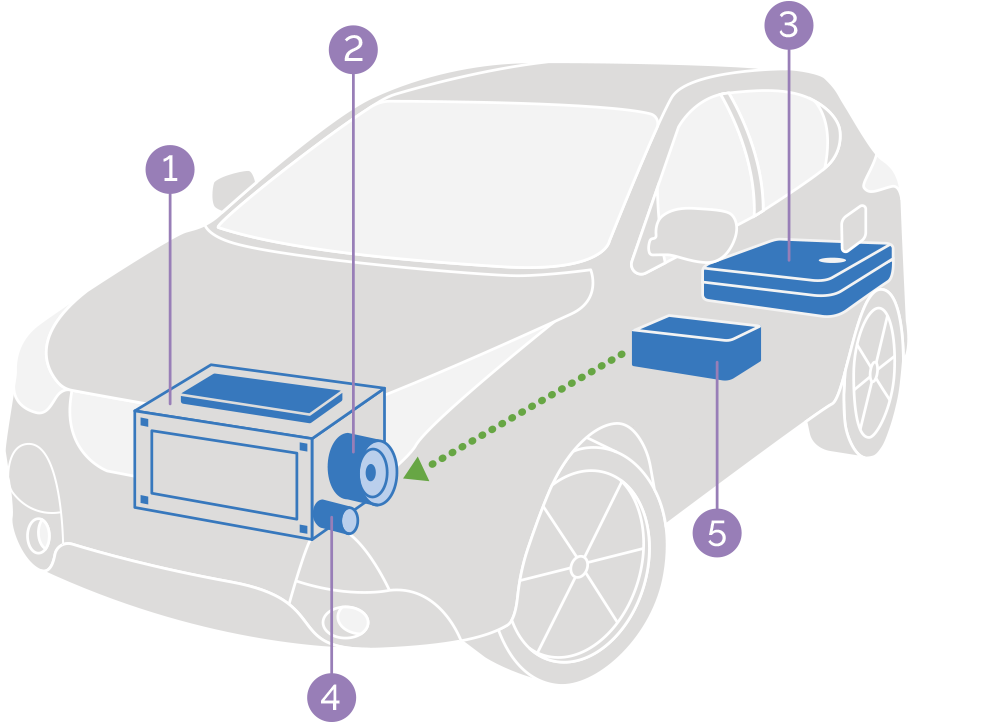Hybrid Electric Cars
Hybrids are gas cars that include a battery and an electric motor for improved fuel economy, lower emissions and better performance. Gasoline is still the main source of power.
Benefits
- Reduced pollution
- Increased fuel economy
How They Work
A hybrid car combines an internal combustion engine with a battery-powered electric motor, which usually results in improved fuel economy and reduced emissions compared to their non-hybrid counterparts. Hybrids are fueled by gasoline alone and are not rechargeable by plugging in. However, as the vehicle runs, the engine and a regenerative braking system charge a small onboard battery.
While the electric drive can help increase fuel efficiency, especially in stop-and-go city driving, it isn’t designed to run the car in an electric-only mode. Using primarily gas, hybrids have driving ranges similar to traditional gasoline vehicles.

- Engine – Powers the vehicle when driving at speeds above 15 mph
- Electric Motor – Powers the vehicle up to 15 mph, and assists engine when accelerating
- Gas Tank – Fueled with gasoline just like a conventional car
- Electric Generator – Captures energy from regenerative braking and transfers to battery
- Battery – Secondary small 1 kWh battery powers the electric motor
Availability
A wide variety of hybrids are available with most auto manufacturers offering hybrid versions of their popular models. Search vehicles to see available models.
Performance
Each hybrid will perform differently, but in general, their performance is similar or better than their gasoline counterparts.
Costs
Hybrids often cost more than their gasoline counterparts due to the battery and electric engine systems; however, this is not always the case. You may be able to recoup a higher upfront cost by spending less each month on gasoline. Consumers have expressed concern over the eventual need to replace a hybrid’s battery, but so far, hybrid batteries have been shown to have good durability. Toyota has reported that some original Prius batteries have exceeded lifespans of more than 200,000 miles.
Incentives
While hybrids offer fuel savings compared to gas-only cars, they do not qualify for many of the incentive programs available for other types of battery-electric and plug-in hybrid electric cars.
Fueling
Hybrids run primarily on gas. As a result, refueling is the same as conventional vehicles, although generally required less often due to improved fuel economy from the electric motor.
Additional Resources
HybridCars.com
News, education, market updates and buying guide for hybrid vehicles.
